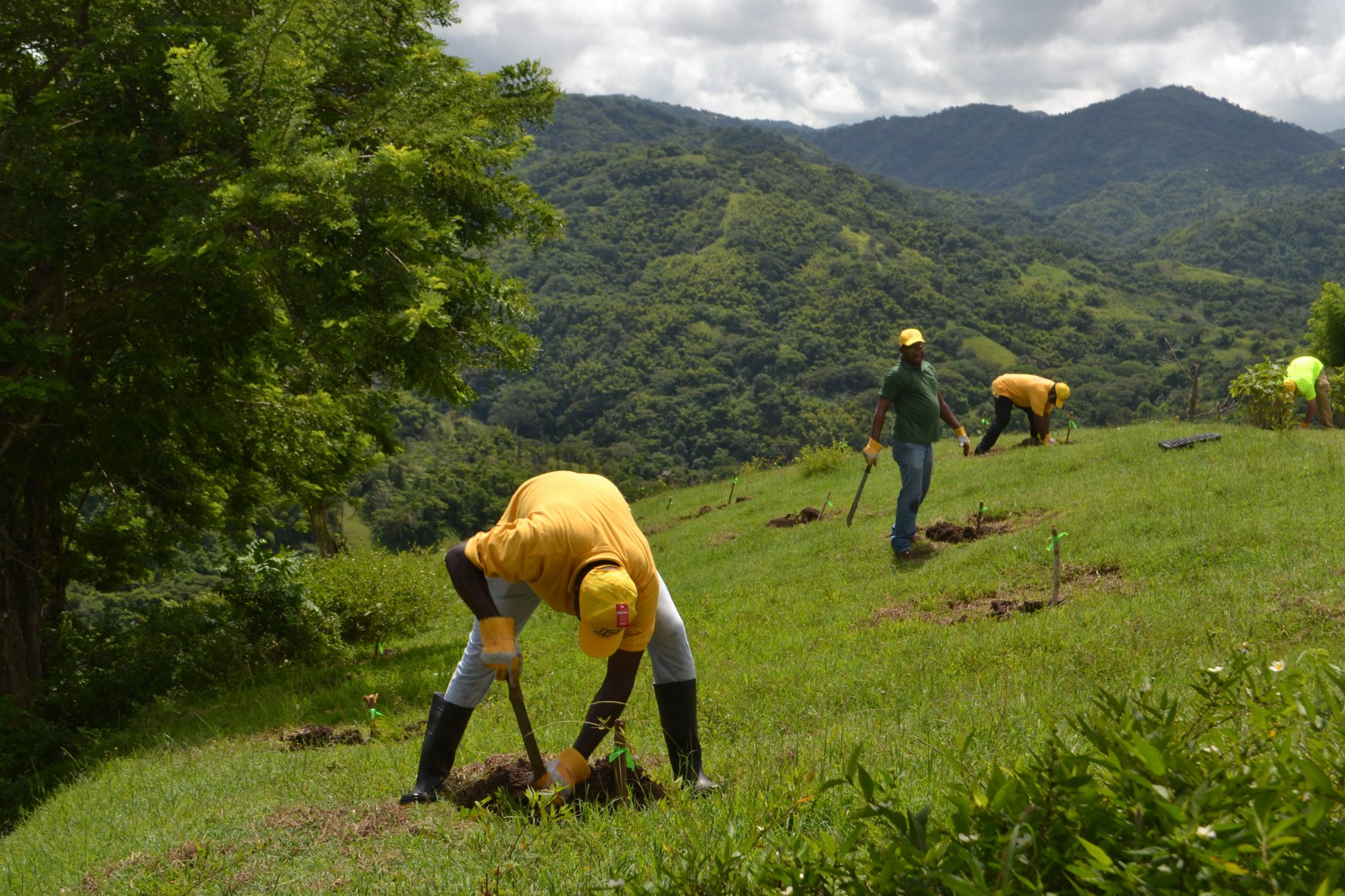Forestry Department Invites Private Sector Interests to ‘Adopt-A-Hillside’
By: , June 4, 2019The Key Point:
The Facts
- It is against this background that the Forestry Department remains focused on maintaining trees in Jamaica’s forest reserves through, among other things, its ‘Adopt-a-Hillside’ Programme.
- The agency’s Manager for Strategic Corporate Planning, Davia Carty, tells JIS News that the initiative aims to encourage private-sector participation in the agency’s reforestation efforts.
The Full Story
Trees are pivotal to sustaining life. They provide a home for many animals, stabilise the soil, store carbon dioxide and provide oxygen, which is vital for all life forms.
It is against this background that the Forestry Department remains focused on maintaining trees in Jamaica’s forest reserves through, among other things, its ‘Adopt-a-Hillside’ Programme.
The agency’s Manager for Strategic Corporate Planning, Davia Carty, tells JIS News that the initiative aims to encourage private-sector participation in the agency’s reforestation efforts.

The programme, which began in 2010, involves corporate entities and, to a lesser extent, service groups entering a three-year contractual agreement with the Department to reforest hillsides within Jamaica’s forest reserves.
Silent Hill, Manchester; Mount Prospect, St. Ann; and communities in St. Elizabeth and Clarendon are among the areas where hillsides have been identified by the Department for reforestation efforts.
“The corporate entities would plant trees in the first year and maintenance takes place in the remaining two years of the contract. We will maintain the site after the initial planting, and the number of trees are agreed on from the start,” Ms. Carty informs.
The Department provides the seedlings and trees for planting and technicians who prepare the land and oversee the process on the agreed planting days.
“For any site that we are planting on forest lands – managed by the Forestry Department and owned through the National Land Agency – we provide seedlings based on silvicultural prescriptions for the area. It is normally our forest trees and ornamentals,” the Manager explains.
A reforested site, referred to as an ‘established’ site, is maintained a minimum two to three times annually, to ensure that seedlings are not choked by weeds, grass and leaves.
After three years, seedlings would have grown to an average height of three feet and no longer require regular maintenance.
“They will then work into our recurrent programme where we patrol lands for disturbances and infractions from humans and animals. In terms of maintenance, there is not much that is required; so we will prune the trees and replant where trees have been damaged by things such as animals or fire. We also do forest assessments, checking for disease, to ensure that there is none and that the site is progressing well,” Ms. Carty further tells JIS News.
The roles of all stakeholders are explained prior to the commencement of the reforestation partnerships.
“We work with a ratio of about 625 trees to one hectare as the base crop. So the company can, therefore, determine whether they want to adopt one, two or three hectares,” Ms. Carty adds.
More than 20 hectares have been reforested with over 12,500 trees since the project commenced, thanks to partnerships with entities that have adopted hillsides or contributed to the engagement.
They include the Inter-American Development Bank (IDB), Jamaica Money Market Brokers Limited (JMMB), Jamaica Public Service Company (JPS), Sandals Foundation, Flow Foundation, and Sagicor Bank.
The JPS has been involved in the programme since its inception, having adopted six hectares of hillside to date.
Manager for the company’s Health, Safety and Environment Department, Azalee Lawson, tells JIS News that there has been overwhelming feedback from “environment- loving staff”.
“We formally adopted one hectare in Keith’s Hall, St. Andrew, in 2010. In 2017, we adopted three hectares in Cedar Spring near our Maggotty Hydro Power Plant, St. Elizabeth, and two hectares in the British Forest Reserve in Clarendon,” she informs.
Ms. Lawson notes that JPS endeavours to preserve and enhance the environment, adding that partnering with the Forestry Department was one way of doing so, citing tangible rewards to be derived.
“Planting in the forest reserves has been rewarding, especially when we visit after five years to see the fruits of our labour standing tall. I would encourage other companies to participate in the ‘Adopt-a-Hillside’ Programme,” she adds.
Interested entities should write to the Chief Executive Officer and Conservator of Forests at the Forestry Department, 173 Constant Spring Road, Kingston 8.
A project officer will be assigned to engage the entity in discussions regarding arrangements for the number of hectares being targeted and the associated costs.
A site visit of suggested areas is, thereafter, arranged followed by the drafting of a proposal, once the parties agree to the terms, and contract the arrangement.
Ms. Carty says these engagements can be done within 20 working days, depending on when the request is made.
“This programme shows a commitment to safeguarding our forest resources and protecting our environment; that’s a cause that we believe should be dear to every Jamaican. Reforestation is necessary because our forests provide clean air and clean water and so many social benefits. We cannot do it alone. It requires partnerships,” she states.


